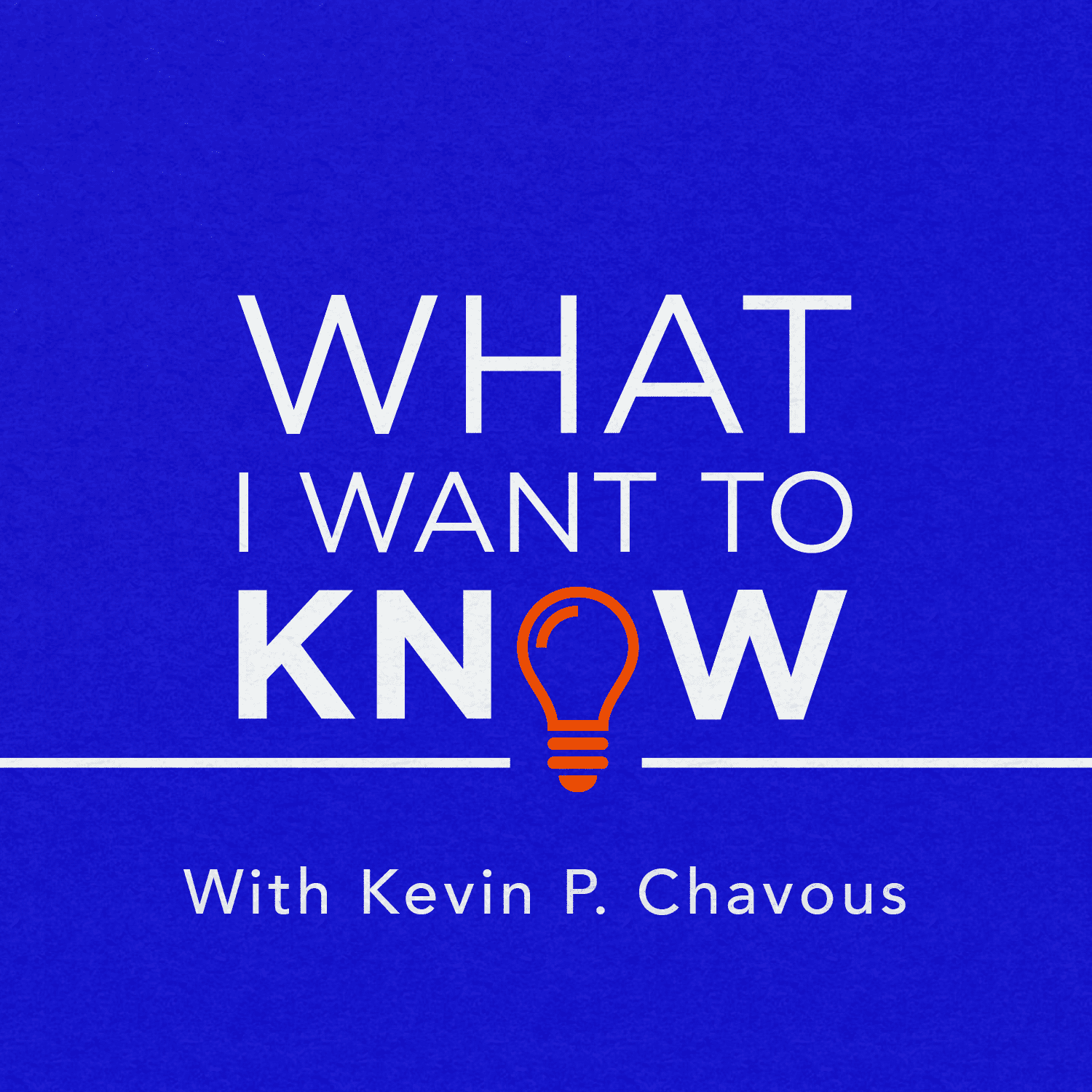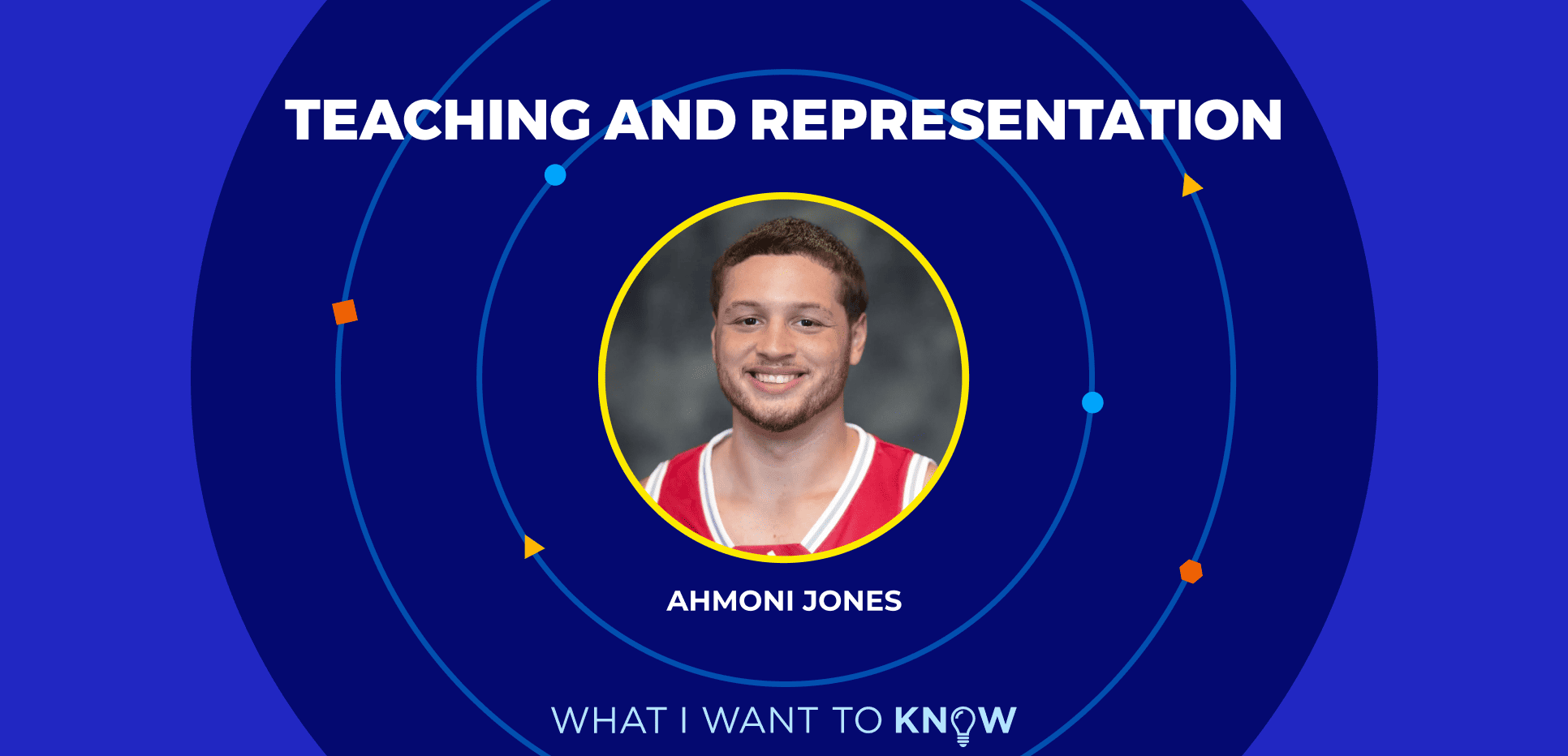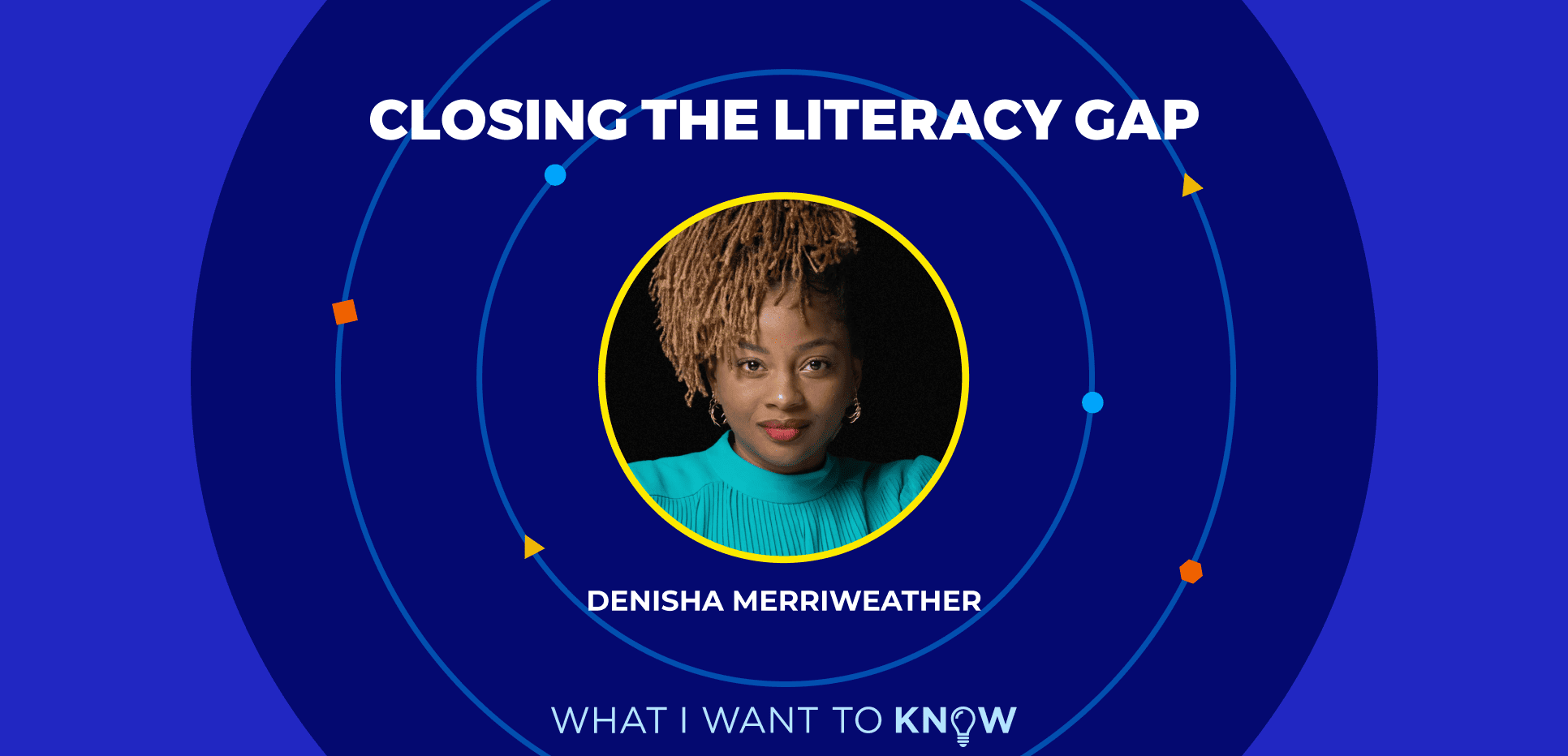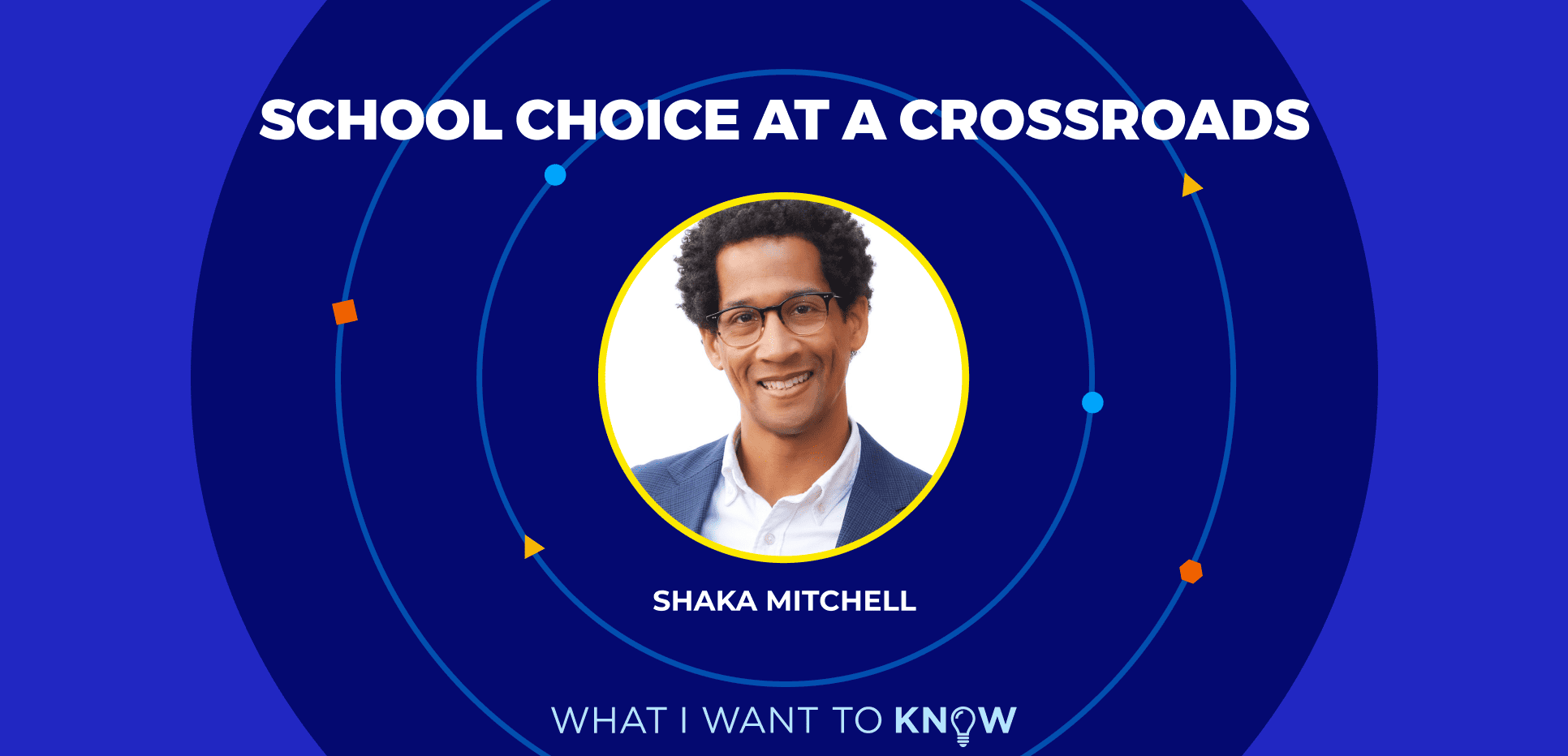More than 50 million people have played Dungeons & Dragons since its creation in 1974, and the game remains highly popular today, especially among teens.
Can the world of fantastical creatures be adapted for classrooms to improve learning engagement? In what ways might tabletop gaming help students develop life skills? And how might games like Dungeons & Dragons inspire students’ educational and career outcomes?
In this episode, Kevin discusses how schools can use tabletop gaming in learning with Stefan McNinch, president and founder of UnboxEd.
Listen to the Full Audio
Listen on: Apple Podcast, Spotify
Transcript
Kevin: Over 50 million people have played Dungeons and Dragons since its creation in 1974, and the game remains highly popular today, especially among teens. Can the world of fantastical creatures be adaptive for classrooms to improve learning engagement? In what ways might tabletop gaming help students develop life skills? And how might games like Dungeons and Dragons inspire students’ educational and career outcomes? This is What I Want to Know, and today I’m joined by Stefan McNinch to find out.
Kevin: Stefan McNinch is the president and founder of UnboxEd, an education company that develops tabletop games for classroom use. He began his career as a teacher in Austin, Texas, primarily focusing on special education. It was there that students first suggested that he start a Dungeons and Dragons Club. After a few years, Stefan went back to school to learn about designing games for education. Today he joins us to discuss how tabletop games can help students learn more effectively. Stefan, welcome to the show.
Stefan: Thank you. It’s a privilege to be here.
Kevin: So I want to talk to you about this idea of gamification, gameful learning. I’ve had several shows on it because this idea of student engagement to me is vitally important. To make sure our children are not just receiving the education that they should be receiving, but frankly, they want to receive it because there are so many other distractions out there. But before we get into that, you started as a teacher in the Austin school system. What led you to want to be a teacher?
Stefan: That’s a funny question. I was an English major, a creative writing major in college, and the whole path towards college and beyond, a lot of people kept accusing me of going down the teacher route. And I said, “No, no, no. I’m not going to be a teacher. I’m not going to be a teacher when I graduate.” Then I graduated into the recession, and in trying to be a creative writer and novelist, one of the characters I wanted to develop was a substitute teacher. So I actually looked down the path of substitute teaching in an effort to learn more about the occupation. And so I became a substitute teacher, which was also one of the few jobs I could get. And then, I found a home very quickly in a particular elementary school, which is an age I never thought I would be accustomed to. And that started a seven year teaching career in the classroom.
Kevin: And in particular, you eventually became a special education teacher, isn’t that right?
Stefan: That’s right, yeah. And that’s another thing I never thought that I would be geared toward, but I guess something about my temperament, patience, the sort of kids involved — that really struck me. And that was another coincidence to where special ed jobs, because so few people wanted to do them as a substitute, that was where most of the jobs actually became available. And I gained an acumen for it and a skill set for it and really found a home in that particular subject.
Kevin: And it can be very rewarding. And I’m sure you saw that every day with your students. And that leads me to this conversation specifically around Dungeons and Dragons because, as I understand it, part of the inspiration came from you being in the classroom.
Stefan: Yeah, absolutely. I have to give full credit to the kids. They approached me to ask me to sponsor a D&D club. And originally it was a group of fifth graders who were very on the nerdy side of things, very bibliophiles, very into Lord of the Rings, and they requested this club. And once I started sponsoring it, then with my creative writing background, there was no way that I was not going to DM and do copious amounts of research to figure out how to make this the most enjoyable club I could.
And from then it took off into a five-year love affair with growing this club. And by the end of it, because of my proximity to special ed, about 50% or more of our students in the club were special ed students. And pretty early on in the formation of the club, I realized that with that sort of cohort of students, I needed to transform the club and make it more accessible, make it more on the tutoring and mentoring side of things. And so that’s when I started to do more game-based learning and embedding more content, more social-emotional skills into it.
Kevin: So let me ask you about Dungeon and Dragons for the uninitiated or uninformed; talk a little bit about that game.
Stefan: Dungeon and Dragons is a narrative RPG narrative role-playing game in which you sit around with a group of people who are brave and do nothing but stare at each other and use their imaginations. And you develop characters. Your characters can specialize in any number of fields, from healing, to magic, to barbarians. You can be any number of races and classes; you can be a hunter, an archer, et cetera. And you go on adventures as provided by the Dungeon Master or the game master who is neither good nor evil. They’re a neutral figure who just makes this world rich and expansive, and they riff on whatever the players want to do and create the game that the players want to play. And it’s verbal based. All you need is a pencil and a sheet of paper and your imagination and some dice.
Kevin: I mean, actually you were drawn to the game, that particular game through the young people. When did you see or begin to see some utility around student engagement from an academic point of view, just by being involved in the game?
Stefan: Immediately. I mean, within just the formation of the group, the sort of communication skills it required, the sort of long-term planning it required. The amount of constant feedback systems that were so divergent from what the kids had in school, meaning you start with this character, you build up the character, you gain skills, points, items, treasures, abilities, powers, et cetera. And it’s always additive and it’s constantly feedback. And in school you see the opposite, which is subtractive feedback. You measure errors more than successes most of the time, and the feedback is not necessarily constant. You might not ever know what you did wrong or why you did it wrong, and you’ve just got to move on to the next topic without really addressing it.
But games are quite the opposite. And especially in forming a group like that, you also see a lot of what I call democratization of the process. So you step into what’s called in games the magic circle, which is this agreement that all players are going to sit there and agree to the rules of the game. In some D&D situations, you can make up novel rules. It’s more of a system than a codified game, I suppose. And the democratization is especially important, especially for kids because it allows them to have some agency and some self-efficacy in actually creating the rule sets, agreeing to what they’re going to be doing, agreeing to how they’re going to be doing it and what they want to get out of it.
Kevin: I’ve heard all kinds of descriptions of the changes that sort of emerge when kids have ownership in their learning in this way, and things like they become active listeners. And you mentioned the democracy associated with it. They’re more deferential, yet at the same time they are respectful of the rules, and there’s this whole kind of culture and community that grows just from being part of the games, and there’s excitement around the prospect of what is to follow once you’re in the game. Does all that make sense to you?
Stefan: A hundred percent. And it’s one thing I have to clarify most commonly in even a competitive game — we deal with the violence question or the violence concern quite a bit — but even in a competitive, potentially violent game, which indeed it can be sometimes, or competitive board games that we play, when I mentioned that you step into the magic circle, that is in essence a foundation, a cooperative exercise. You are all still agreeing to abide by these competitive rules. And so there’s this sense of sportsmanship and fairness and citizenry that you create. I mean, I’m a big fan of soccer. And at the end of every soccer game, what do you see? I mean, as brutal as those games are, as competitive as they are, as soon as the whistle blows and that magic circle ends, everybody’s shaking hands. And there’s a lot of comradery around that, and there’s a lot of cooperation even in playing a competitive game.
Kevin: Just as an aside, did you learn anything by sort of observing the types of characters the students chose to be?
Stefan: Yeah, for sure. And one thing I had to do this semester specifically was research a lot about different player types and because I noticed that a lot of the kids were approaching the game in very different ways, including some very negative ways. We had a student who was very into negative attention-seeking. So in a cooperative game, it was actually a lot harder for him to interact because he found the quickest path to self-efficacy in ruining the game. So I had to do a lot of research into figuring out what different types of students might look for in the game and want to get out of the game and how to organize their particular roles in the game to be able to enable that.
So player types were definitely a big one, meaning were they in it for the social fun of it? Were they philanthropists, and they wanted everybody else to have a good time and be more giving? Are they free spirits who just want to explore and do their own thing, and how to enable that in a game that also involves three or four other players? Or are they achievers, and do they just want the trophies and the quests and the items and the treasures and the points?
Kevin: I mean, I think what you just said is so important because one of the follow-ups I was going to ask you was are games like Dungeon and Dragons and some of the other games that help lead to better student engagement, are they more, I guess, compatible with certain student types? And then that leads to, you just said you did a lot of the research on this. Well, for the uninitiated, untrained teacher who wants to do this, how would they go about making sure that they’re matching the right students with the right games and that they acquire the right knowledge base in order to even help manage this?
Stefan: Yeah, good questions. So for the first question, yes, I would say because D&D is more of a collection of systems, and it’s very adaptable and very flexible, so you can simplify it; you can expand certain parts of the game. And so it’s very modifiable for different student types or different learning types. So in the same game, you could have students doing a lot of different things. If a student loves drawing, you can make them a cartographer, and they can just draw maps as their contribution to the game. We’ve had students who love being healers. We’ve had students who just kind of like to do the more exploratory measures. We have students who just want to go for that treasure as fast as possible. And as the game master in that system, you have a lot of agency yourself to be able to figure out how to engage each particular student type, how to create the game for them, how to create the game that is more universal for everybody, but also pick out pockets if you notice that one student is having particular fun in this area.
Kevin: And what about the idea of teachers?
Stefan: Right. It will require some research and some familiarity with game design in the sense of how to change those systems for particular students. I would say at the core, when you’re looking at implementing games for students, probably even before you get into player types, probably think about what games you enjoy and what you enjoy about them. So I think when you’re bringing games into it, sometimes, especially something like D&D, when there’s a lot of role-play and imagination, there’s a lot of vulnerability in it, and all of the passion and vulnerability you bring, the children will tend to mirror that.
So I think even before that, you have to decide what really excites you, what makes you passionate, and what are you going to be able to confidently create an event out of? Because if it’s just very flat and banal and boring, you’re not going to get anything from any type of student. So, find out what really excites you and then bring that, and then you can start to identify which parts of that students engage with or don’t engage with. And then you can modify that once you have that, building blocks for creating an event out of it.
Kevin: So a couple questions, though. Talk a little bit in greater detail about what exactly you’re doing in your company for the students in the schools you’re working with.
Stefan: So we are in the after-school setting right now. We would love to transition as well into the in-school setting, but in the after-school setting, we run after-school programs, and we have four different classes. We’ve got a living history class, we have a STEM class, we’ve got an entrepreneurship class, and a social-emotional learning class. The social-emotional learning is our newest class, because in trying to run curriculum for all the others post-pandemic, we realized that it was really not an option at four o’clock after school to try and stuff even more content into these kids’ brains when what they really needed was complete resocialization, all of those SEL skills. And so we scrapped almost all of our curriculum and started from the beginning with that social-emotional learning class.
Kevin: And what about the results since you just started? Have you seen any results, and how are you measuring the results?
Stefan: Yeah, I’m partnering with a PhD at the Bush School here in Texas as well. I’m very kind of a data geek myself, so from the get-go, I was very interested in the data side of things. And in game-based learning, especially at the elementary level, there’s not a lot of research out there yet. So what we’re seeing is engagement with last semester when we started with just a standard curriculum of writing and then once we switched to a game-based curriculum, we have charts on the website with that that can show the level of engagement spike. We measure students’ moods at the beginning and end of class. We have warm-up questions and creative activities designed to stimulate their creative energies, their imagination, just asking them questions and getting them, prompting them to ask questions about life, the world, themselves.
So just getting some semblance of making sitting in that seat, learning anything, even if they, and they’re pretty good at sniffing out learning, but just making it fun in any way as opposed to achievement right now. I’m far more interested in: Did you have fun? Do you feel better about yourself? Do you feel more confident? Did you learn anything new? Do you have any new questions? What would you do differently next time? What strategies did you use today? Just things like that as opposed to assessing real quote, unquote, “academic achievement.”
Kevin: And I think this is something that post-pandemic educators in the education system have to come to grips with. It sounds as if my experience indicates this as well, that the life skills, the socialization, being able to work in group settings, being interested in learning and stoking that curiosity: these are all benefits. But as you said, the link between the engagement and student achievement in the wake of the learning loss over the last couple years, that’s a tougher thing to figure out, isn’t it?
Stefan: Absolutely. Yeah. And I think you hit on a huge part, and I’m a big advocate for not calling them soft skills, because to me, and I’m learning very quickly as well that they’re the bedrock on top of which all other education lies as well as just quality of life. Because yeah, these kids — I asked a student the other day if he can remember reading a book, just a book, any book. And he says he remembers reading one book in class, but he doesn’t remember what it was. And to me, that’s imagination and curiosity. I think those are muscles that atrophy and atrophy pretty quickly. And if you conceive of what you lose, especially when you delay literacy, you don’t learn the muscle of being able to visualize something that isn’t there. That’s one of the main things that books and daydreaming do for you.
And if you’re not reading, and if you spent the last two years at home, probably consuming a lot of digital stimuli, and in low-income households, I think like there are orders of magnitude more and more consumption of digital screen time. So imagine those two things, and the imagination is one of the biggest things we’ve had to deal with. We assumed that because they were students, we’d walk in, and they would just be bursting with excitement to play these imaginative games. And we have experienced just the opposite. That imagination is painful for these students right now, and that’s become our core mission right now is to just try and get them to exercise those imagination and curiosity muscles and see the pleasure in it, start releasing that dopamine when it comes to that. And just having fun sitting in a chair at school is one of our big missions right now.
Kevin: One of the challenges we’re seeing, and it’s increasing over time, is that many young people are seeing education as more of a chore and also don’t see the value in it. And again, in the wake of some of the learning loss and the fact these deficits occur and kids aren’t reading, they can’t comprehend, they can’t count. It feels more like a burden when teachers and educators are trying to help them catch up. And so, do you think this game-based learning can help sort of ameliorate that challenge we see?
Stefan: And creating vocabulary for them to understand specialization. And that’s one of the great things that something like D&D is great for is being able to specialize in a role that you’re actually very interested in and figuring out what goes into that role. One of the first clubs we did years ago was we scrapped the linear campaign, and we did an economic campaign where the kids started their own business, and that’s now one of the classes we offer. And they loved it. It was the best campaign I’ve ever run. It was by far their favorite campaign they played. But even something like that is something you can do in the game, and you can make it fun. And we had a blast building the company up, and I put them in the ringer because the job I was doing after education was in economics. And so I had some enthusiasm and passion to bring to it, and I made everything an event for them.
And we did everything from marketing. We all had executive suite roles. We did budget; we did supply chain; we did margins; we had contracts; we had a lawyer; we had consultants; we did everything. We eventually franchised the company. I mean, they learned so much about what goes on in economics and business and starting your own company. So that’s an example of something you can do with the system and how you can engage in real-world problem solving, real interest and passion stoking. And so games, especially RPGs, can give them a buffer between the real world and this play world where they can still act out things, and boys can explore with aggression, females can explore with identity and exploration. We have some students who have created queer characters to explore what that might feel like, what that might look like. We have males exploring with female characters and females exploring with male characters. So that is an abstraction since it gives them a safe place to play with those interpersonal things that they might not feel safe communicating yet.
Kevin: Right now you’re doing this as an afterschool program, and though you were integrated in your special education classrooms while you were teaching, many schools are, I guess, sticking their toes in the water, so to speak, trying to figure out how to integrate gameful learning, game-based learning, gamification, what have you. This is what I really want to know, and this is the last question. What might be helpful for schools to know and understand if they’re considering classroom gaming programs in their schools?
Stefan: So game-based learning is more involved in the game, and gamification is more involved in the content with the layer of gamification on top of it. So figure out which one of those I think you have the energy for, because game-based learning is going to take a little more skill and desire for the game side of things. Gamification is going to be more if you just need a little bit more engagement or you’re trying to experiment with different forms of engagement. In those things you can figure out the balance between the extrinsic rewards, which is more gamification, or if you really want to target certain types of students that need that more intrinsic approach type of self-efficacy learning for the game-based learning. And neither of those are a silver bullet, and neither of those are going to work for every type of student. So that’s when the different player types come in and researching into what’s going to be more effective for either student.
Kevin: Well, that’s very helpful. Stefan, thank you so much for joining us on What I Want To Know, and I appreciate the work you’re doing for our kids.
Stefan: Thank you, Kevin. I really appreciated being here.
Kevin: Thanks for listening to What I Want To Know. Be sure to follow and subscribe to the show on Apple Podcasts, Spotify, or your favorite podcast app so you can explore other episodes and dive into our discussions on the future of education. And write a review of the show. I also encourage you to join the conversation and let me know what you want to know using #WIWTK on social media. That’s #WIWTK. For more information on Stride and online education, visit stridelearning.com. I’m your host, Kevin P. Chavous. Thank you for joining What I Want To Know.
Meet Stefan
Stefan McNinch is the president and founder of UnboxEd, an education company that develops tabletop games for classroom use.
He began his career as a teacher in Austin, Texas, primarily focusing on special education. It was there that students first suggested he start a Dungeons & Dragons club. After a few years, Stefan returned to school to learn about designing games for education.






